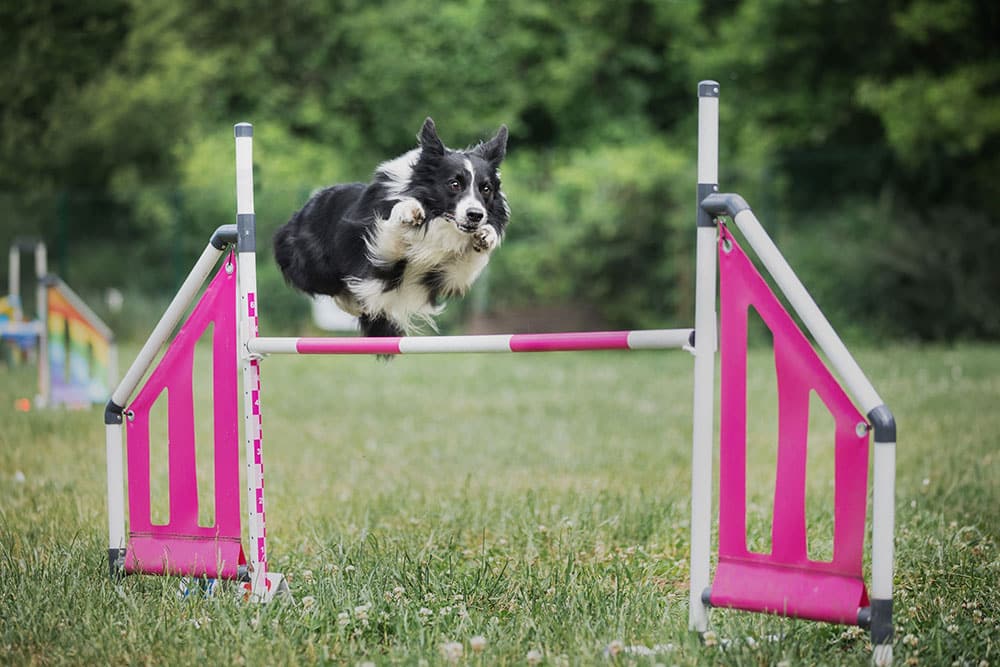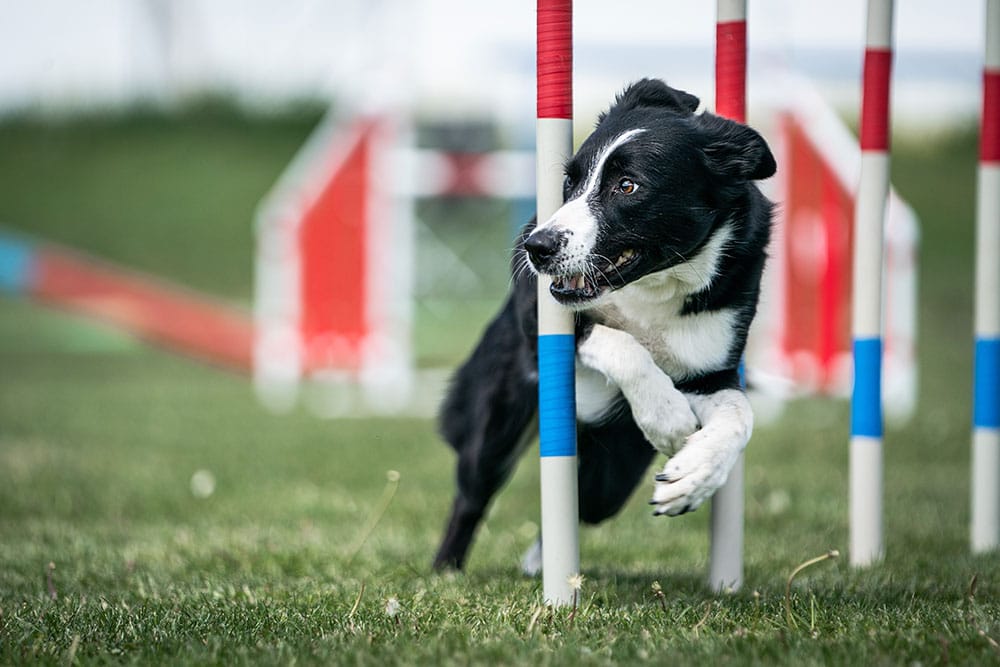Why Sports Therapy Matters for Agility Dogs in Oakville, ON
Agility is more than a sport—it’s a physically and mentally enriching activity for dogs that promotes strength, endurance, and confidence. But the high-impact movements—sharp turns, jumps, and sprints—can take a toll on your dog’s body if not balanced with proper care.
At Trafalgar Animal Hospital in Oakville, we specialize in keeping athletic dogs strong, healthy, and injury-free. Whether your dog competes regularly or trains recreationally, sports therapy is key to maximizing performance while minimizing risk.
Benefits of Canine Sports Therapy
Injury Prevention
Regular check-ups and preventive therapies help detect and address early signs of joint stress, muscle strain, or ligament fatigue. Schedule a preventive exam.
Quicker Recovery
Sports therapy also aids post-competition recovery by easing muscle soreness and accelerating tissue repair. Modalities like massage, laser therapy, and cryotherapy can dramatically reduce downtime.
The Science Behind Canine Movement
Understanding Your Dog’s Anatomy
Your dog’s musculoskeletal system is finely tuned for motion—but repetitive strain can lead to injury, particularly in areas like:
- Stifle (knee) joint – prone to ligament damage
- Shoulders and hips – often affected by jumping impact
- Spine – stressed during twisting or directional changes
Recognizing how your dog’s body works helps you spot signs of discomfort earlier.
How Agility Impacts the Body
Agility training intensifies stress on joints, especially with repeated jumping or weaving. Watch for warning signs such as limping, stiffness, or hesitation on obstacles—these may signal a developing injury.
Learn how to prevent injuries in sporting dogs.
Building a Safe and Effective Sports Therapy Plan
Warm-Ups and Cool-Downs
Warming up prepares the body for movement; cooling down helps prevent soreness. Effective routines include:
- Light jogging or trotting
- Stretching exercises for limbs and back
- Gradual transitions in and out of activity
Explore warm-up and cool-down tips.
Cross-Training to Avoid Overuse Injuries
Cross-training activities like swimming, trail walking, or strength-building exercises balance your dog’s physical development and prevent repetitive stress.
Read about cross-training strategies.
Advanced Therapies at Trafalgar Animal Hospital
Laser Therapy
Laser therapy is a non-invasive treatment used to reduce inflammation, increase circulation, and promote healing in soft tissue injuries.
Learn more about laser therapy at Trafalgar.
Surgical Support for Severe Injuries
When needed, our experienced team offers surgical options tailored to active dogs—from orthopedic repairs to soft tissue procedures.
Explore our surgical capabilities.
Getting Started: Your Sports Therapy Roadmap
Initial Consultation
We begin with a full physical exam, health history review, and evaluation of your dog’s current routine and performance goals.
Customized Therapy Plan
From strength training and mobility work to recovery support, every plan is customized to your dog’s needs and goals.

Frequently Asked Questions
How often should my agility dog get a physical exam?
At minimum, every 6 months—more frequently if your dog trains or competes year-round.
What are early signs of injury during training?
Limping, reduced drive, hesitancy with obstacles, or changes in behavior can all be red flags.
Can my older agility dog still benefit from therapy?
Absolutely. Therapy can extend your dog’s active years and reduce stiffness and discomfort.
Partner With Trafalgar for Peak Performance
At Trafalgar Animal Hospital, we’re passionate about helping athletic dogs stay strong, resilient, and happy. With the right care, your dog can enjoy a long and successful agility career—one that’s as safe as it is rewarding.
Contact us today to get started on a personalized sports therapy plan.









Leave A Comment